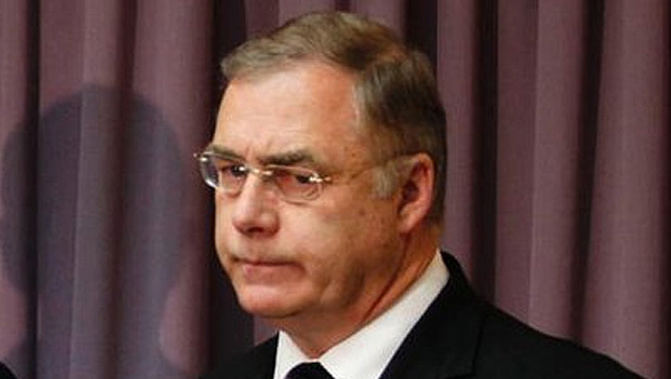
Bill English says comments from former Defence Minister Wayne Mapp about an SAS raid in Afghanistan have not influenced his thinking on whether an inquiry is needed.
The Prime Minister said that was because he had been advised Mapp's comments about the operation were informed by a documentary broadcast on Maori TV in 2014.
"We are still not going to rush into an inquiry. My understanding is his [Mapp's] comments are based on the documentary, which was really the first airing of the same allegations that are in the book [Hit & Run]," English told reporters today.
"He doesn't have any new or different information than has been available to the Defence Force or the Government. I haven't spoken to him but I have had advice from people who have."
Nicky Hager and Jon Stephenson alleged in their book Hit & Run that Mapp had privately expressed concerns about a Special Air Service (SAS) raid in Baghlan Province in 2010, when he was minister.
The book said he told the friend that the joint operation was New Zealand's "biggest and most disastrous operation. A fiasco".
Mapp today confirmed that he described an SAS raid on an Afghani village as "disastrous" and "a fiasco".
Until now, Mapp did not deny he made the comments but would not go any further.
He conceded yesterday that civilians were killed in the operation, contradicting statements by the New Zealand Defence Force (NZDF) and the government.
Hager and Stephenson claimed that six civilians were killed and 15 were injured in the raid, which was carried out with US air support and alongside Afghan troops which New Zealand had been mentoring.
The book said the raid was a revenge attack on insurgents who were believed to be responsible for the death of SAS soldier Timothy O'Donnell, the first New Zealand combat death in Afghanistan.
Mapp said statements by the NZDF in 2011 that there were no civilian casualties were "the honest belief at the time" and were based on an investigation by the International Security Assistance Force (ISAF).
He did not find out civilians had been killed until a documentary by Stephenson broadcast on Maori TV in 2014 showed that a three-year-old girl, later named as Fatima, died in the raid.
"There was enough supporting evidence around [to make] that a credible claim, at least on the face of it.
"And I also knew, of course, that the people who we were actually targeting had not been arrested or killed."
He said the Defence Force would not have known it had killed civilians because the raid took place at night time and in difficult conditions.
Mapp defended the SAS soldiers' actions, saying they had been under constant attack from insurgents in what was considered a "hostile village".
"You're in a counter-insurgency operation, there's always going to be people around.
"And if people are moving towards you, looking like they're in tactical formation, then you're entitled to defend yourself. That's the circumstances they were facing."
Mapp said it was difficult to tell the difference between civilians and insurgents, and soldiers acted on a "reasonable belief" they were being attacked by insurgents.
"Bear in mind insurgents here, it's not like a full-time job where you're wearing a uniform. You can be a farmer by day and an insurgent by night. That's the reality."
It was up to the government to decide whether an inquiry was warranted, he said. But claims that New Zealand may have committed a war crime were "fundamentally wrong".
"If you act in an honest and reasonable belief that you are under attack, then you are entitled to defend yourself."
Prime Minister Bill English says he has been briefed that there is "nothing new" in Hit & Run.
But he has not ruled out an inquiry. He wants further briefings from Defence Minister Gerry Brownlee and Defence Force chief Lieutenant Colonel Tim Keating, who return from Iraq on Saturday.
Take your Radio, Podcasts and Music with you









